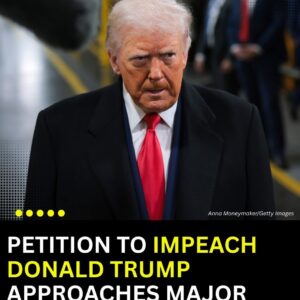Secretary of State Marco Rubio, speaking via official channels and in a statement posted to the State Department’s X (formerly Twitter) account, declared that the United States would immediately revoke all existing visas held by South Sudanese citizens and halt the issuance of new ones. The action, Rubio explained, stems from “the failure of South Sudan’s transitional government to accept the return of its repatriated citizens in a timely manner.”
This measure represents a notable escalation in diplomatic pressure on Juba, Sudan’s capital, and reflects the Trump administration’s broader emphasis on strict enforcement of immigration statutes and reciprocal obligations among nations. Rather than relying solely on customary diplomatic protests or incremental sanctions, the administration has opted for a direct restriction on travel—one that carries both symbolic weight and real‐world consequences for individuals and families divided by conflict and displacement.
In parallel, the Department of State issued its own statement urging South Sudan’s leadership to “stop taking advantage” of U.S. laws and to cooperate fully in repatriation efforts. The department emphasized that visa restrictions “will be prepared to be reviewed when South Sudan is in full cooperation,” signaling a potential pathway for reinstatement contingent on compliance.
This article examines the legal authority for such visa revocations, the historical context of U.S.–South Sudan relations, the humanitarian and security considerations at play, and the domestic policy parallels that illuminate how the current administration is reshaping American immigration enforcement.
2. Legal Authority for Visa Revocation
2.1 Immigration and Nationality Act (INA) Provisions
Under the Immigration and Nationality Act of 1952 (INA), the Secretary of State has broad discretion to issue, deny, or revoke nonimmigrant and immigrant visas “for any reason deemed in the national interest” (8 U.S.C. § 1104(a)). The INA further empowers the Secretary to prescribe standards for visa eligibility, including requirements for repatriation cooperation by foreign governments.
Specifically, Section 222(f) of the INA authorizes the Department of State to cancel or annul visas if a visa holder “is determined to be ineligible to receive a visa” or if “any provision of [the INA] has not been complied with.” Moreover, Section 243(d) permits rescission of status for individuals whose continued presence in the United States poses a threat to public policy or safety.
2.2 Reciprocity and Cooperative Obligations
Longstanding U.S. policy holds that countries must accept the return of their nationals when the United States seeks to remove them. Failure to do so can trigger reciprocal restrictions—ranging from enhanced passport controls to visa suspensions. This principle is rooted in the 1963 Vienna Convention on Consular Relations, which mandates that consular officers be able to communicate with their nationals in the host state, and that diplomatic channels facilitate the issuance of new travel documents for repatriation.
By invoking these authority strands, Secretary Rubio’s order aligns with past instances in which the United States has leveraged visa policy to enforce bilateral obligations—such as suspensions against Venezuela in response to delays on deportations and similar measures against nations stalling repatriation of their citizens held in U.S. immigration detention.

U.S.–South Sudan Relations: Historical Context
3.1 South Sudan’s Independence and U.S. Recognition
South Sudan emerged as an independent state on July 9, 2011, following decades of civil war with Sudan. The United States recognized the new nation immediately and invested heavily in its stabilizing institutions—supporting peace negotiations, providing humanitarian aid, and sending advisors to assist in governance and security‐sector reform.





